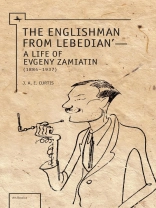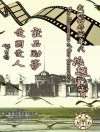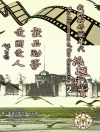After Evgeny Zamiatin emigrated from the USSR in 1931, he was systematically airbrushed out of Soviet literary history, despite the central role he had played in the cultural life of Russia’s northern capital for nearly twenty years. Since the collapse of the Soviet Union, his writings have gradually been rediscovered in Russia, but with his archives scattered between Russia, France, and the USA, the project of reconstructing the story of his life has been a complex task. This book, the first full biography of Zamiatin in any language, draws upon his extensive correspondence and other documents in order to provide an account of his life which explores his intimate preoccupations, as well as uncovering the political and cultural background to many of his works. It reveals a man of strong will and high principles, who negotiated the political dilemmas of his day—including his relationship with Stalin—with great shrewdness.
Table des matières
List of Illustrations VIII Introduction 1 Chapter 1: From Lebedian’ to St Petersburg (1884-1906) 6 Chapter 2: From Astrakhan to Arkhangel’sk (1906-1916) 25 Chapter 3: From Petrograd to Newcastle upon Tyne (1916-1917) 51 Chapter 4: Petrograd (1917-1921) 86 Chapter 5: Petrograd/Leningrad (1922-1925) 117 Chapter 6: Leningrad (1926-1929) 154 Chapter 7: From Koktebel’ to the Warsaw Station (1929-1931) 198 Chapter 8: From Riga to Cagnes (1931-1932) 225 Chapter 9: Paris (1933-1937) 258 Conclusion 307 Bibliography 357 Acknowledgments 373 Index 375
A propos de l’auteur
Julie Curtis is a Fellow of Wolfson College, University of Oxford, where she has been teaching Russian since 1991. She is the author of two books about Evgeny Zamiatin’s close friend and contemporary Mikhail Bulgakov, including a biography (Manuscripts Don’t Burn: Mikhail Bulgakov—A Life in Letters and Diaries). She also has a particular interest in Russian drama from Pushkin to the present day. In the course of her research on Zamiatin’s life she discovered a unique original typescript of his most famous novel, the science-fiction anti-utopia We (1920), which George Orwell read and admired as he was planning his own Nineteen Eighty Four. Her scholarly edition of Zamiatin’s We, co-edited with Marina Liubimova, was published in St Petersburg in 2011, and provided Russian readers for the first time with an authentic text of this classic work.












